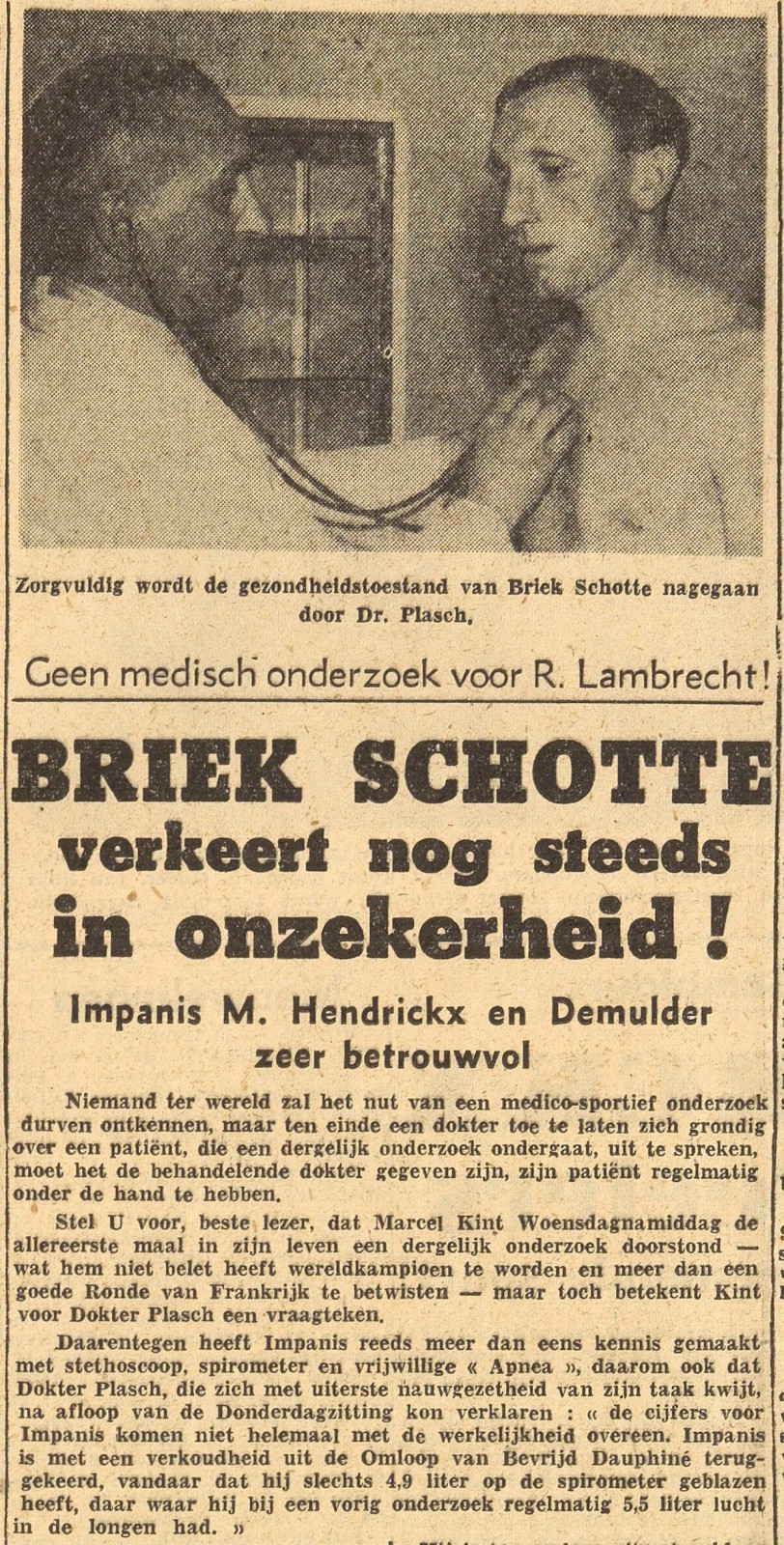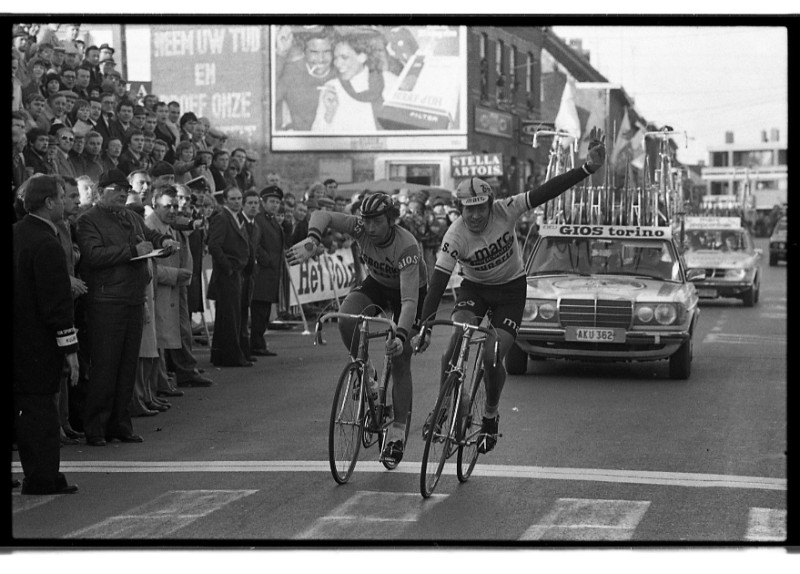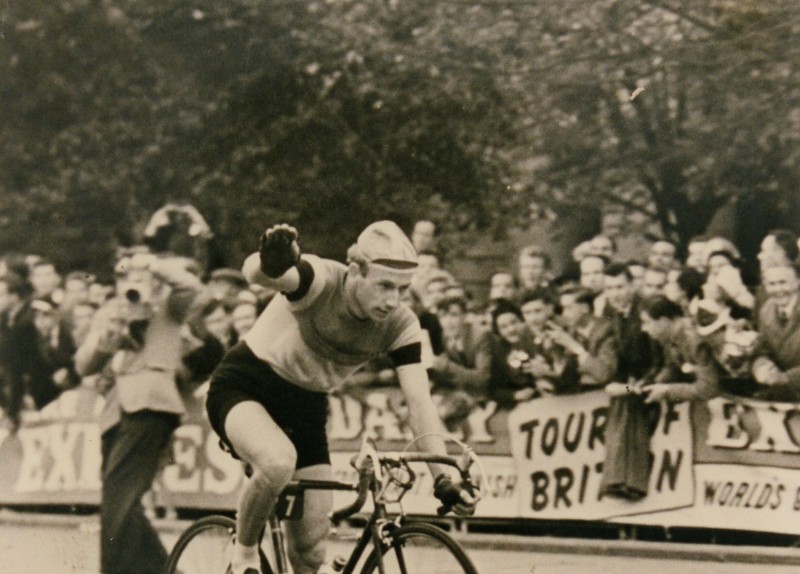At the beginning of the 20th century riders were assisted by soigneurs. These persons not only fulfil the task of the modern-day soigneur, but are also very often trainer and manager. Often, they have no or only limited medical training. Sports medicine was still in its infancy at that time. One of the pioneers in this medical branch is doctor Florimond Plasch.
Plasch earns his spurs as a club doctor at Sporting Club Anderlecht. Since 1920, Anderlecht has had its own medical cabinet. Florimond becomes Anderlecht's second club doctor in history. The doctor has a strong opinion and pleads regularly in the press for a general medical examination for sportsmen. He also advocates the training of real sports doctors, who are responsible for the execution of several tests. With these test results, they can then develop better medical guidance.
At S.C. Anderlecht, "no one is allowed on the playing field without an examination by Mr. Plasch," according to an article in Sportwereld in the summer of 1937. The Belgian Cycling Federation also advocates medical screening of its members. This is shown in an article published in the association's magazine in the autumn of 1937: "The Belgian Cycling Federation has always been very concerned about the physical condition of its members. We are in favour of a pre-sport medical examination in order to protect the youth, who often work too hard and too enthusiastically, from physical excesses of a kind to harm them."
When in 1938 the BWB henceforth requires its young members to be examined by a sports doctor, Doctor Plasch comes into the picture. He became the head of the Medical Commission and acted as the first club doctor. Just like with Anderlecht, young riders are subjected to an extensive medical examination. This happens in a specially equipped room in the building at the Martelarenplein. The new regulations are generally considered to be positive and progressive. That same year, the Committee of National Education and Sports and the Belgian Olympic Committee reward the Belgian Cycling Federation with a Grand Prix for this initiative.
After the Second World War, doctor Plasch also takes care of the medical examination of riders who are selected for the Tour de France - in those days ridden by national teams instead of brand teams - and the World Championships. This sometimes causes a stir, especially if the doctor indicates that a rider already selected by the Belgian Cycling Federation is not in great shape. When the riders of the Tour de France are found to be fit for the forthcoming Tour, a collective sigh of relief ripples through the national sports press. This was the case in 1949 when, after some (medical) doubts, Briek Schotte was declared fit.
Every once in a while, some medical test data (height, weight, lung capacity, ...) of riders are made public through the press. But apart from these medical tests, riders are mainly left to their own devices when it comes to medical care. The Sporta movement, the branch within the Catholic Church which is concerned with the 'spiritual care' of sportsmen and women and cyclists in particular, is trying to change this.
In the fifties and sixties, so-called cyclist schools were organised on the initiative of Sporta. In 1962, three of these meetings for cyclists take place in West Flanders (Waregem, Bruges and Gits). The programme includes various speakers who each deal with a different theme: general fitness exercises and tips for maintaining the racing bike, but also advice from the medical world. Doctor Tampere, for instance, will give a lecture in the course of '62 entitled 'The cyclist with brains', Doctor Abeele will talk about 'cyclist's problems' and Doctor Van Ryckeghem will talk about 'The cyclist's pharmacy box'. Through such low-threshold initiatives, Sporta tries to educate riders, not only mentally but also on a sports-medical level. One of the doctors mentioned, Leo Abeele, is in those years not only president of cycling club SV Meulebeke but also works there as a medical advisor and club doctor. Many cyclists who live nearby knock on his door.
A new milestone was reached in 1966. That year, Gerard Daniëls, who succeeded doctor Plasch two years earlier, accompanies a national selection to a competition for the first time. Daniëls travels with the riders and entourage to the World Championships in '66 in West Germany. This brings an end to the tradition whereby doctor Plasch gave cyclists of a Belgian cycling selection a medical check-up before they left for their soigneurs. Doctor Daniëls earned his spurs as a club doctor with VG Oostende and also coached some riders from the region on an individual basis. In Daniëls' wake, more and more doctors started working for cycling teams.
When Belgian Cycling moves to a new building at the Globelaan in Vorst at the end of the sixties, a medical cabinet is set up there as well. At the occasion of the 100th anniversary of the Union in 1982, president Albert Van Mossevelde recalls in his speech some important achievements of the past century. First and foremost he mentioned "the establishment, already in 1937, of our own medical cabinet, which is now equipped with modern apparatus such as radioscopy, electrocardiogram,...". Van Mossevelde also mentions the collective accident insurance, the creation of an Auxiliary fund for cyclists, the fight against doping, the introduction of a photo finish, ...
In the book 'Een eeuw wielerleven' (1982), the functioning of the medical commission of the Federation gets an extensive chapter. Doctor Albert Dirix, who succeeded doctor Plasch as head of the Medical Commission, writes: "The Medical Commission has gradually expanded and applied the many specific problems of sports medicine to cycling. The aim of the commission is to safeguard and promote the health of the riders as well as to give them all the help and guidance they need in this demanding sport."
At the beginning of the 1990s, these objectives are applied for the first time by a cycling team in its own medical centre. In Milan, partly under the impetus of Patrick Lefevere, the Mapei Center is launched, the first test and innovation centre linked to a cycling team. Thirty years later all professional teams have their own extensive medical staff and there is intensive cooperation with universities. In 2022 Belgian Cycling's team doctors will be responsible for the medical supervision of riders at World and European Championships and some races where a national (youth) selection will start, in all disciplines. Even when there is no doctor present, there is always a back-up of the responsible doctor. Consultation is possible 24 hours a day, 7 days a week. In addition, Belgian Cycling is strongly committed to prevention. Federal doctor Kris Van der Mieren gives health sessions to junior riders, informing them about sports nutrition, doping legislation, safety, ... That way, junior riders get to know how they can participate in (top) sport in a healthy and ethical way: "The combination of the ethical and the sportive is considered as very important at Belgian Cycling," says Van der Mieren.
Despite his 'retirement', cycling still dominates Patrick Lefevere's daily life. The West-Fleming has more than fifty years of cycling under his...
The 1952 Summer Olympics in the Finnish capital Helsinki - held from Saturday 19 July to Sunday 3 August - threatened to turn into a sporting...




